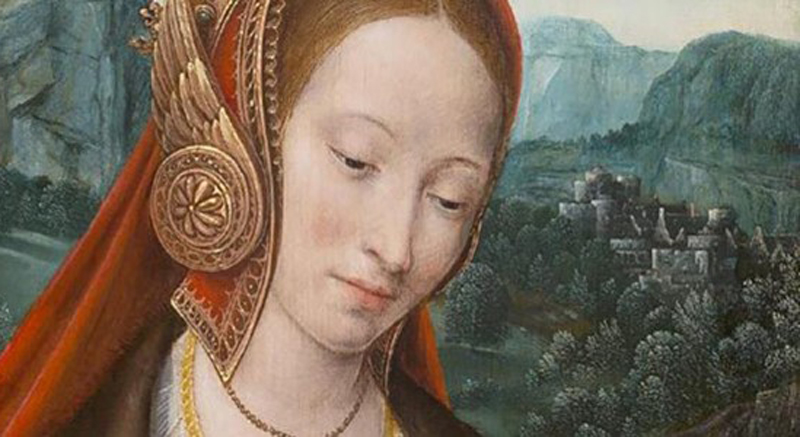(1447-1510)
Catarinetta (little Catherine) Fieschi, was a child of a noble family of Genoa. At 13, she wanted to enter a convent but was refused admission because of her youth.
When she was 16, she was given in marriage to a young nobleman, Julian Adorno. For this reason, she is sometimes called St Catherine Fieschi-Adorno.
Julian was pleasure-loving, quick-tempered, and unfaithful. It was a difficult circumstance for Catarinetta; and for a while she tried to drown her disappointment in a whirl of pleasure. She retained her trust in God, however, and did not give up her religious exercises.
Sometime in 1473, she visited the convent where her sister was a nun. While there she went to confession and it led to a life-altering change for her. She felt her soul filled with a large measure of grace, making her realize vividly her own sins.
Catarinetta began to receive holy Communion every day and continued to do so for the rest of her life. She entered upon a most intense spiritual life. After reforming herself, she converted her husband, and then lost herself in service to the poor and the sick.
Her husband’s squandering of their riches caused them to lose their elegant home and forced them to take up residence in the Pammatone, the largest hospital of Genoa. Catherine and her husband now devoted themselves to the works of mercy. In 1490, Catharine was made matron of the women’s division of the hospital; and she held this position for twenty-one years until her death.
After the death of her husband in 1497, Genoa was beset by a four-year-long plague that took away 80 percent of the population. While Catherine worked tirelessly to help the sick, she managed to maintain a profound spiritual life, sometimes experiencing ecstasies. She also wrote an excellent treatise on Purgatory and another which is a dialogue of the soul and the body. The Holy Office declared that these works alone are proof enough of her genuine holiness.
For the last nine years of her life, Catarina had a mysterious illness that some have defined as the fire of divine love. In a farewell note to her goddaughter Tomasina Vernazza, Catherine’s exhortation encapsulates her philosophy: “Tomasina! Jesus in your heart! Eternity in your mind! The will of God in all your actions! But above all, love, God’s love, entire love!”
Catherine died on Sept. 15, 1510, the feast of the Exaltation of the Holy Cross. The body of St Catherine was exhumed 18 months after her death. Her body was found to be perfectly intact even through her burial shroud was damp and decayed. There were many miracles that occurred at this time.
Pope Clement XII canonized St. Catherine of Genoa in 1737.
Adapted by A.J. Valentini from: St. Catherine of Genoa. (n.d.). Roman Catholic Saints. Retrieved March 15, 2021, from https://www.roman-catholic-saints.com/saint-catherine-of-genoa.html
